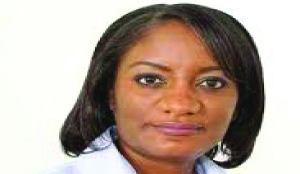By KENNEDY MUPESENI –
THE Zambia Institute for Policy Analysis and Research (ZIPAR) has urged government to peg the public sector wage bill ceiling to eight per cent of Gross Domestic Product (GDP) to manage expenditure pressures.
This will also ensure efficient administering of vacant positions through monitoring of ministries, provinces as well as spending agencies.
ZIPAR executive director Pamela Nakamba-Kabaso said Government needed to limit the wage bill to eight per cent of the GDP.
“Government should set a public sector wage bill ceiling as part of the macroeconomic objectives and quantitative performance criterion such as limiting the wage bill to eight per cent of GDP.
“This will help Government in managing vacant positions, through monitoring of the Ministries, Provinces and Spending Agencies,” Dr Nakamba-Kabaso said in a statement in response to the recently presented K53 billion national Budget.
She said that unless such measures were keenly applied, the Government’s well-intentioned expenditure rationalisation measures were likely to be derailed by expenditure pressures arising from a fast-increasing public sector wage bill.
Failure to heed would result in increased spending on road infrastructure and high debt service payments.
To address the economic challenges raised in the 2016 Budget analysis, ZIPAR has recommended a number of policies to widen the tax base while streamlining incentives further.
“To boost tax revenue Government must also include housekeeping measures to improve the administration and collaboration between
Zambia Revenue Authority (ZRA) and the Zambia Development Agency (ZDA) as well as to transfer the signatory powers on incentives from the Minister of Finance to the Minister of Commerce,” she submitted.
ZIPAR also wanted the system of direct deposits to be rolled out to all non-tax collecting institutions to effectively collect tax and ensure that non-tax revenue performs according to expectation.
The local research and economic think tank has further recommended that the Government should revise its target for reducing the budget deficit in 2016 so that is it more realistic.
This should include considering cutting the deficit over a longer period than one year so as to avoid the risk of undermining growth in Zambia.







